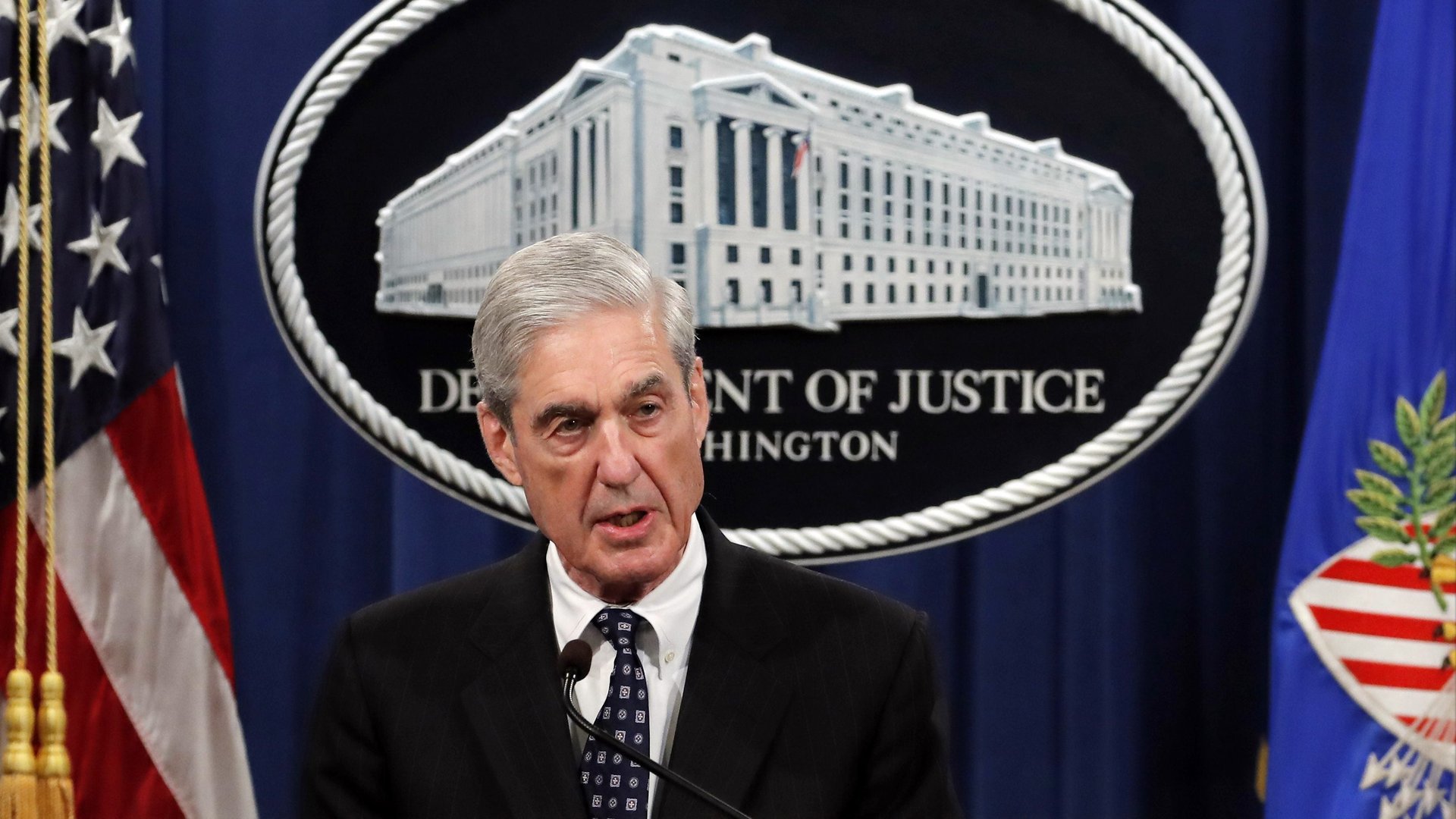Robert Mueller’s message to America: Read the damn report
Robert S. Mueller III spoke publicly for the first time Wednesday about his investigation into Russian interference in the 2016 US elections since the special counsel’s office launched its inquiry two years ago.


Robert S. Mueller III spoke publicly for the first time Wednesday about his investigation into Russian interference in the 2016 US elections since the special counsel’s office launched its inquiry two years ago.
It emerged last month that Mueller sent a letter to president Donald Trump’s attorney general William Barr after he submitted the report, saying Barr’s summation, which seemed to fully exonerate Trump, was misleading. But speaking today, Mueller did not offer any additional insight into the report or take any questions after reading his prepared statement.
“There has been discussion about an appearance before Congress,” Mueller told reporters. “Any testimony from this office would not go beyond our report. It contains our findings and analysis, and the reasons for the decisions we made. We chose those words carefully, and the work speaks for itself.” (If you still don’t feel compelled to read the actual Mueller report, Quartz has done the heavy lifting for you HERE, HERE, and HERE.)
The report, as issued, “is my testimony,” Mueller continued, adding that he “would not provide information beyond that which is already public in any appearance before Congress.”
In short, Russian military intelligence officers launched a “concerted attack on our political system,” which included hacking Hillary Clinton’s 2016 presidential campaign and funneling stolen emails to WikiLeaks, while a private entity simultaneously embarked on a social media campaign in which Russian citizens posed as Americans in an effort to swing the 2016 election for Trump. Further, Trump allegedly obstructed justice in attempting to shut down Mueller’s investigation, which centered on members of the Trump team.
“As set forth in our report, after that investigation, if we had confidence that the president clearly did not commit a crime, we would have said that,” explained Mueller, reiterating that Department of Justice policy precludes bringing charges against a sitting president.
“So that was the Justice Department policy, and those were the principles under which we operated,” he continued. “From them we concluded that we would not reach a determination—one way or the other—about whether the president committed a crime. That is the office’s final position, and we will not comment on any other conclusions or hypotheticals about the president.”
Mueller closed his brief remarks by reiterating “the central allegation of our indictments,” namely, that a foreign power made “multiple, systematic efforts to interfere in our election.”
“That allegation,” he said, “deserves the attention of every American.”
Russia’s attempts to influence the 2016 election have been confirmed on the record by top US intelligence officials. In a Senate Intelligence Committee hearing (pdf) during Trump’s first few months in office, Sen. Mark Warner, a Virginia Democrat, asked officials from the Federal Bureau of Investigation and the National Security Agency, as well as director of national intelligence Dan Coats and then-CIA director Mike Pompeo—who was appointed by Trump—if they agreed that ”Russian intelligence agencies were responsible for the hacking and leaking of information and using misinformation to influence our elections?”
Everyone answered yes.